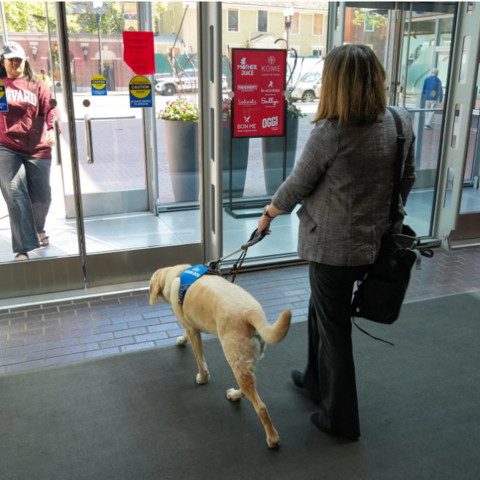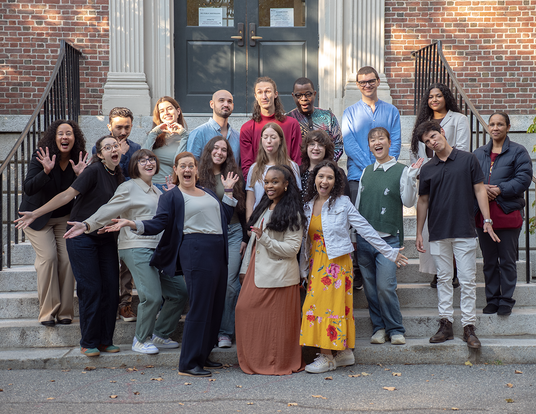Mind Your Mental Health
Mindfulness tips and resources from Harvard’s Center for Wellness and Health Promotion

The recently concluded Mental Health Awareness Week drew attention to students’ increasing concerns about stress, anxiety, and other conditions. In response, many at Harvard find themselves looking for resources to manage stress and increase well-being. Mindfulness can be an effective strategy for coping with these stresses, offering a way to cultivate personal well-being. But what is it? Does it work? And what does it cost?
What is Mindfulness?
Mindfulness is the practice of being present and fully engaged in the moment, without judgment. Research indicates that mindfulness can significantly reduce stress levels. Individuals who practice mindfulness and meditation experience reduced rates of anxiety, depression, self-criticism, chronic pain, and insomnia while at the same time seeing increases in concentration, memory, emotional regulation, self-acceptance, and quality of sleep. Mindfulness can do a lot to help support you in going from surviving to thriving.
At its core, mindfulness involves cultivating awareness of the present moment. It encourages individuals to observe their thoughts, feelings, and body sensations without judgment (which can be the hardest part of mindfulness). This practice can help people recognize patterns in their thoughts that can contribute to stress and anxiety.
The beauty of mindfulness and meditation is that it can be practiced anywhere and at any time, making it a versatile tool for students dealing with the pressures of academic life. Just remember we aren’t trying to stop our thoughts when we meditate – we are trying to become aware of them without criticism and to see them as they are.
Ways to Practice Mindfulness
Students can incorporate mindfulness into their daily routines in various ways:
- Mindful Breathing: Taking a few minutes to focus on your breath can help center your thoughts and reduce anxiety. Simply inhale deeply, hold for a moment, and exhale slowly.
- Body Scan: This technique involves mentally scanning your body for areas of tension by focusing on each body part and consciously relaxing it.
- Mindful Walking: Instead of rushing between classes, take a few minutes to walk mindfully. Pay attention to the sensation of your feet on the ground and the environment around you.
- Mindfulness Meditation: Setting aside time to practice meditation can help improve concentration and emotional regulation. Apps like Insight Timer offer hundreds of free guided meditations.
Resources for Students
For those interested in exploring mindfulness further, numerous resources are available for students (yes, even Harvard Griffin GSAS students) at low or no cost. Harvard’s Center for Wellness and Health Promotion (CWHP) offers a range of mindfulness programs and classes designed to support your well-being. Here are some highlights:
- Free Mindfulness Classes: The CWHP offers a wide range of classes focusing on various aspects of mindfulness, including Mindful Masculinity, Introduction to Mindfulness, and Mindful of Race.
- Movement-Based Classes: From yoga to Pilates to breathwork, there is probably a modality that appeals to you.
- Online Guided Resources: Recorded and live guided meditations make it easy to practice whenever and wherever you want, at your own pace.
Remember, the Center for Wellness and Health Promotion is just one part of Harvard University Health Services’ (HUHS) mission to heal, care, and educate. Along those lines, HUHS offers 24/7 Mental Health Resources through the Counseling and Mental Health Services (CAMHS) Cares Line, 617-495-2042. And if you have a concern or challenge and need hands-on help, you’re always welcome to visit the Office of Student Services in the basement of the Student Center at Harvard Griffin GSAS, room B-2.
Banner image by Ugur Arpaci on Unsplash.
Get the Latest Updates
Join Our Newsletter
Subscribe to Colloquy Podcast
Simplecast





